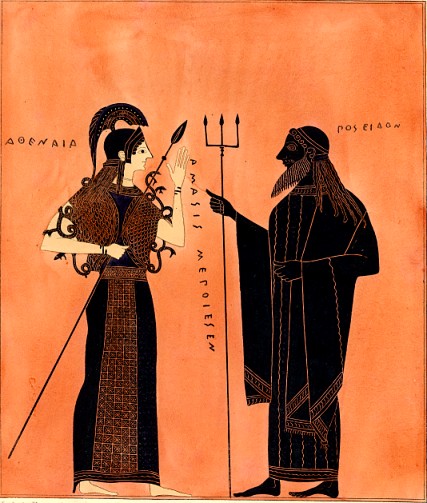Mountain Man looks like a mountain. His long gray-streaked hair and beard cascade into his giant shoulders cloaked in flannels. Somehow, though, despite his Western ruggedness, he reminds me of some ancient king -- grizzled wisdom and large glassy eyes.

My vague and almost gut-reaction association reminded me of Swann in Proust's In Search of Lost Time. Proust often likens characters to figures in art -- a means of accessing both the person and the historical figure represented. I am not sure how exactly this "accessing" works. It is a kind of lie.
Swann, for example, begins to fall in love with Odette (even though he is not initially attracted to her & thinks she is rather stupid) after he likens her to Botticelli's rendering of Zephora.
This comparison seems to infuse Odette with all the painting's grace and beauty. It is a means for Swann to "understand" her -- or perhaps a better word is "possess" -- even as he makes her what she is not.

Proust can be depressing when he writes about desire. It may seem that the object of desire is never truly "real," so laden with associations. For when the object is seen in reality, the need to understand/possess vanishes.
At the same time, a peculiar and rich satisfaction comes out of associating real people with figures in art. I think it stems from nostalgia for a past that wasn't actually yours. Vague emotions attach themselves to ancient Greece, to the Renaissance, etc., and together they elevate the object of desire.
I agree with Proust to a certain extent, but I'm not depressed about this. When these associations attach themselves to people around us, it makes our experience of the world more complex and interesting. This is not to say that people as they "really are" are neither -- not at all -- but I like the idea of our surroundings being linked to the past, to art, to personal memory. I think desire, in this sense, may not give us a means of truly understanding another person, not in & of itself. But it does create an interesting triad between oneself, the object of desire, and the artwork, connected by different threads of longing.
